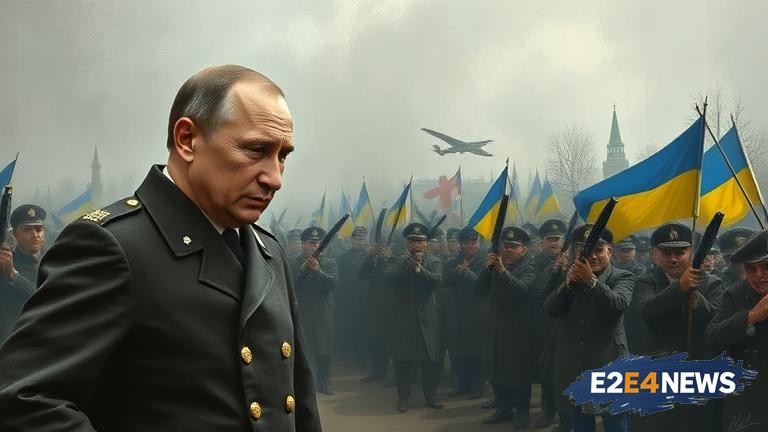The ongoing conflict in Ukraine has sparked a heated debate among world leaders, with former US Secretary of State Hillary Clinton drawing parallels between Russian President Vladimir Putin’s actions and those of Nazi leader Adolf Hitler. Clinton’s comments have been met with both criticism and support, with some arguing that the comparison is apt and others claiming it is exaggerated. The situation in Ukraine has been escalating for months, with Russian troops amassing along the border and engaging in skirmishes with Ukrainian forces. The international community has been watching with bated breath, wondering what Putin’s next move will be. Clinton’s remarks have added fuel to the fire, with some interpreting them as a call to action for the US and other Western nations to intervene on behalf of Ukraine. Others have criticized Clinton for her choice of words, arguing that it is unfair to compare Putin to one of history’s most notorious villains. Despite the controversy, Clinton’s comments have sparked a necessary conversation about the nature of Putin’s aggression and the implications for global stability. The conflict in Ukraine has already resulted in significant human suffering, with thousands displaced and hundreds killed. The economic toll has also been substantial, with trade and commerce grinding to a halt in the affected regions. As the situation continues to deteriorate, it is clear that a resolution will not be easy to come by. The US and other Western nations have imposed sanctions on Russia, but it is unclear whether these measures will be enough to deter Putin from further aggression. The European Union has also been involved in efforts to broker a peace deal, but so far, these attempts have been met with limited success. The comparison to Hitler’s invasion of Europe is not without merit, as both involved the use of military force to expand territorial control and impose a particular ideology on neighboring countries. However, some have argued that the situations are not entirely analogous, and that Putin’s motivations are more complex and nuanced. Regardless of the historical parallels, it is clear that the situation in Ukraine requires a swift and decisive response from the international community. The US and other Western nations must work together to provide economic and military aid to Ukraine, while also engaging in diplomatic efforts to bring about a peaceful resolution. The consequences of inaction could be severe, with the potential for further destabilization and conflict in the region. As the world watches with bated breath, it is clear that the situation in Ukraine will have far-reaching implications for global stability and security. The international community must come together to address this crisis, and to prevent further aggression from Putin and other would-be aggressors. The use of military force to achieve political goals is a threat to global stability, and it is the responsibility of world leaders to condemn such actions and work towards a more peaceful and diplomatic solution. The situation in Ukraine is a complex and multifaceted one, with deep historical and cultural roots. The conflict has been fueled by a range of factors, including economic and political instability, as well as a desire for greater autonomy and self-determination. As the international community works to address this crisis, it is essential that we take a nuanced and informed approach, one that takes into account the complex historical and cultural context of the region. The comparison to Hitler’s invasion of Europe is a powerful one, and it serves as a reminder of the dangers of unchecked aggression and the importance of collective action in the face of tyranny. As we move forward, it is essential that we prioritize diplomacy and dialogue, while also being prepared to take decisive action to protect the sovereignty and territorial integrity of Ukraine. The situation in Ukraine is a test of the international community’s resolve and commitment to upholding the principles of peace, security, and human rights. It is a challenge that we must rise to, and one that requires a coordinated and sustained effort from nations around the world.
